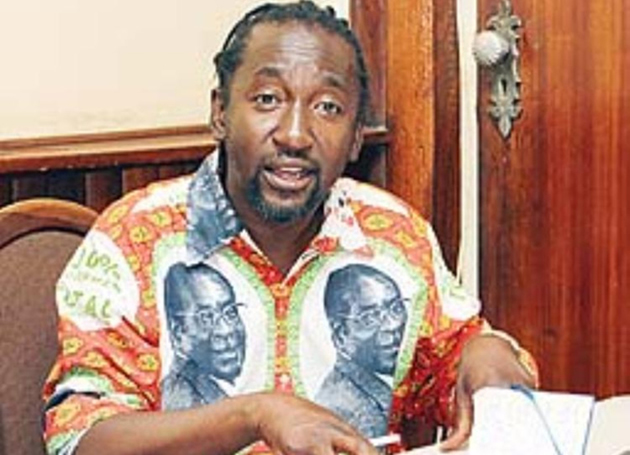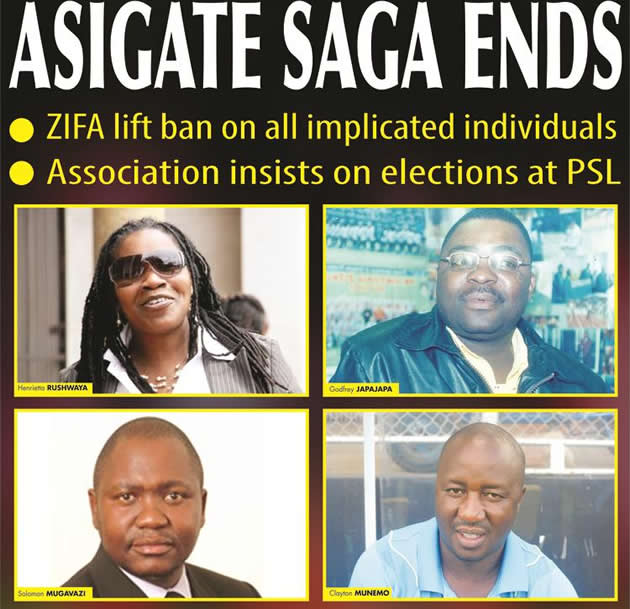The Interview – Indigenisation: ‘Take cue from President Mugabe’


CDE PATRICK ZHUWAO . . . “My mandate is very simply to implement the Indigenisation and Economic Empowerment Act. And as I implement this Act, I must implement a whole Act, not just specific provisions of the Act”
After what was fast turning into an embarrassing soap opera over the indigenisation Policy as the minister responsible, Cde Patrick Zhuwao, and Finance Minister Patrick Chinamasa publicly differed on a new framework for the law, the two ministers declared last Monday they had found each other. Cde Zhuwao (PZ) tells The Herald’s Political Editor Tichaona Zindoga (TZ) that this was a critical turning point and that going forward, there will be consistency in the articulation and implementation of the policy and law. Here are excerpts from the interview:
TZ: Many people have observed the discord between the Finance Minister, Patrick Chinamasa, and you, the Indigenisation Minister, around the issue of indigenisation. We saw different statements and different policy positions before and after Christmas. There appears what sounded like a rapprochment last Monday. Can you locate all this rumpus around indigenisation?
PZ: I think the issue of indigenisation and economic empowerment legislation revolves around what my mandate is, and my mandate is very simply to implement the Indigenisation and Economic Empowerment Act. And as I implement this Act I must implement a whole Act, not just specific provisions of the Act.
I must implement it in such a manner that I take into consideration the legislative intent and the policy intent of the particular Act. The first thing that I want to be able to say is that the Act has got six pillars and it’s important that we acknowledge the six pillars of the Act.
The first pillar relates to the actual indigenisation of the economy, while the second pillar relates to the economic empowerment of indigenous Zimbabweans. So those two pillars are aspirational.
It has also got three institutional pillars, which are the National Indigenisation and Economic Empowerment Board and the establishment of the Fund and the National Indigenisation and Economic Empowerment Charter. And then obviously any other matters that are connected or incidental to those five pillars.
What Government has been able to do is to establish the institutional pillars of the legislation which is the board, the fund and the charter. But taking into consideration the constraints that Government is operating within, those institutional pillars have not been adequately funded.
What has been problematic has been a deliberate attempt to ignore the aspirational pillars of the indigenisation and economic empowerment legislation, namely the further indigenisation of the economy and, secondly, the economic empowerment of indigenous Zimbabweans.
The frameworks that we have developed deal with all of the pillars in a very holistic manner by providing and making sure that entities that have not yet complied with the indigenisation and economic empowerment legislation comply with the legislation as we enter into 2016. And this really puts into effect the pronouncement by President Robert Mugabe.
We have provided within the frameworks a number of possible pathways to compliance and those pathways have been designed in such a manner that they also facilitate for achieving the aspirational pillar of economic empowerment. They also facilitate for financing the institutional pillars which is the board, the fund and making sure that the charter is adhered to. So that is basically my focus.
But having said that, indigenisation and economic empowerment needs to be implemented by everybody in Government. I have taken a slow and deliberate approach to make sure that I have the support of all of my colleagues and we are getting there. We had a major milestone on Monday in that for the first time since the legislation became operative, we now have both the fiscal and monetary authorities supporting the legislation and the implementation of the legislation.
That is very important and it may appear to those that don’t take a long look that differences were there at Christmas. But by the time we got to Christmas, by the time General Notice 394A was published, we had gone 95 percent of the way towards getting an agreement and we just needed an extra four or five days to get to the 100 percent agreement and we did that in a record space of time.
But the issue to take home here is that since Minister (Saviour) Kasukuwere, we have not had the level of support that we have gotten from the fiscal authorities in the person of the Minister of Finance and from the monetary authorities in the person of the Governor of the Reserve Bank of Zimbabwe. And that really is something that I am very elated about.
TZ: You said your mandate is to holistically implement indigenisation. Now have you felt at any point your lane being encroached on to?
PZ: I have actually always felt since I was appointed that my lane was too big and I really want colleagues to assist me with that. And really the engagement that we have with fiscal and monetary authorities was to make sure that we are all together.
I don’t think it is an issue of my lane being encroached upon. I think the Minister of Finance in particular has been very helpful towards strengthening the implementation of the Indigenisation and Economic Empowerment Act. And if one looks at Finance Act No. 3 of 2014 that provision has made it possible for the implementation to now be a Government-wide implementation and I am very grateful and I think Minister Chinamasa was very visionary in terms of that.
TZ: But it would seem that the catchword around the involvement of Minister Chinamasa is about FDI. Do you not feel, as claimed by some, that this infers that indigenisation is a hindrance to FDI?
PZ: I am an economist and I have been able to also articulate my economic views to the Minister of Finance and the Governor of the Reserve Bank, and if you listened to what they have said, they also agree with me that FDI can only work where it fits in with domestic investment.
And in my view I need to put in place measures that allow for the further indigenisation of the economy by making sure that indigenous Zimbabweans are also able to invest within that particular economy.
I want to say this taking into consideration a report that was done by the United Nations Conference on Trade and Development (UNCTAD) in 2013, which identified that FDI does not provide benefits to an economy if there is no base of local investment within that economy. And I think we are agreed with the monetary and fiscal authorities that for FDI to make more effective sense we also need to make sure that it comes in to partner with local direct investment.
TZ: Can you now unpack what indigenisation means following the latest developments?
PZ: I think I will want to quote the Governor of the Reserve Bank Dr (John)Mangudya. He said that 2016 is a year of transformation. Really I am tempted to want to borrow from him. For us in the ministry we said 2016 is a year of empowerment but I think we want to add the transformational component to that aspect.
In 2016 what we have said is that we will not allow any new investment into the reserved sectors. However, what we will do is that we will allow the companies that are operating within the reserved sectors to continue operating but they must also abide by the legislation. And the legislation remember requires that 51 percent shareholding of all companies that are operating in Zimbabwe is owned by indigenous Zimbabwean entities. The indigenisation levy as it has been articulated can be moderated by the rebate system to a point where entities that are complying with the indigenisation legislation can actually get a 100 percent discount. However, entities that then refuse to comply totally will not be able to get any rebates.
And I am of the view and belief that the level of the levy should be so punitive that it doesn’t make business sense. You must understand that we are dealing with business people and business people have to make business decisions. So the level and quantum of the levy must make business sense.
So if we put in a levy which is nonsensically low, what will then happen is that entities will not comply with indigenisation. We must put the levy at such a high level that entities then see it making sense to comply with the legislation.
TZ: And community share ownership schemes, what becomes of them?
PZ: Community share ownership schemes in terms of our national economic empowerment strategy need to go beyond just being based within the mineral resource. We have done this very well within Hurungwe and Kariba districts where Community Share Ownership Trusts are now working together with other entities with regards to carbon credits because there are forests in those areas.
We have also got this similar concept in terms of the Communal Areas Management Programme for Indigenous Resources (Campfire). We have certain areas where you know that, for example in Mutoko, you get lots of mangoes and those mangoes rot every year. So Community Share Ownership Trusts should become the engines or agents for investment within communities and they should facilitate for economic empowerment of communities.
TZ: One thing that worries people is consistency in terms of the articulation of this policy.
Now you mentioned and we saw you coming together with the fiscal and monetary authorities. What assurances do we have going forward that we will no longer have this yo-yo affair where one minister says this and another that? Can people have confidence in the implementation and efficacy of the policy?
PZ: Inconsistencies in the form of utterances also need to be addressed by utterances. You will recall that soon after I was appointed I indicated that my colleagues should be careful what they say around indigenisation because if they say the wrong things I will correct them publicly. And everybody out there must be clear on what they are saying.
But one thing that I know is that President Mugabe has been very consistent. I was watching a video clip of an interview that was conducted in 1979 on the sidelines of the Lancaster House Conference and two things emerged when President Mugabe was asked about what he wanted to see. He said he wanted to see a society where black people were not denied access to land on the basis of the colour of their skin and he also said he wanted to see a society where the economy was not tilted against black people.
So the President has been extremely consistent. And all I would simply urge anybody that works in Government, whether they are appointed or elected in Government, is take your cue from President Mugabe. If you listen to President Mugabe you won’t go wrong.
If you start by going to embassies and having tea and go to other capitals and be told this and that, you will go off track.
People have got confidence in this law called indigenisation, they articulated themselves when they voted and they voted for a Zanu-PF manifesto based on “Indigenise, Empower, Develop and Create Employment”. The evidence is there.









Comments